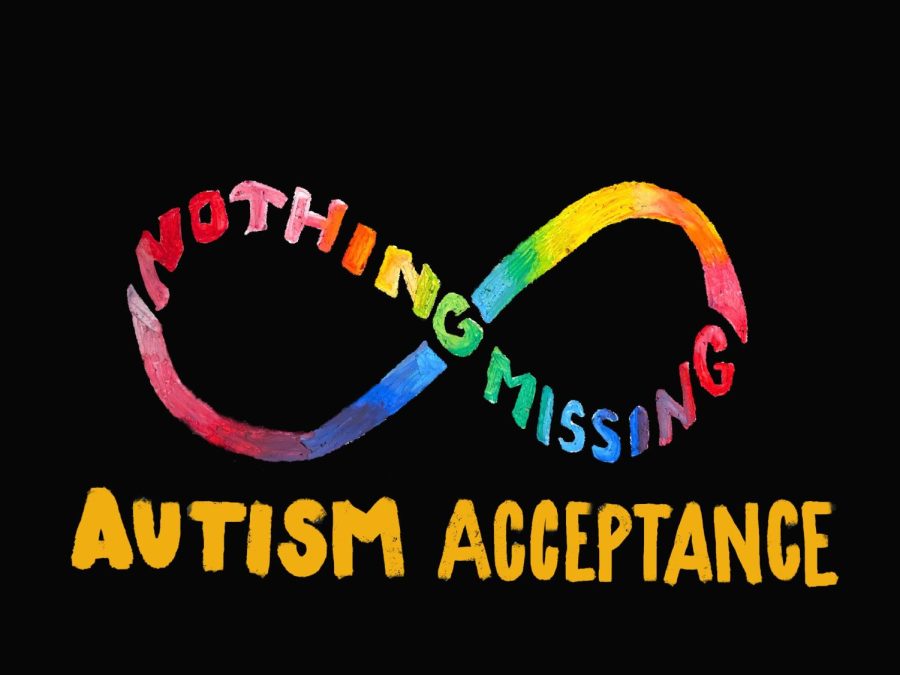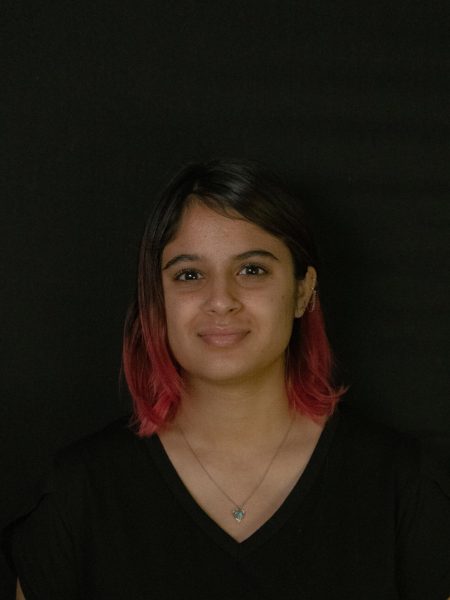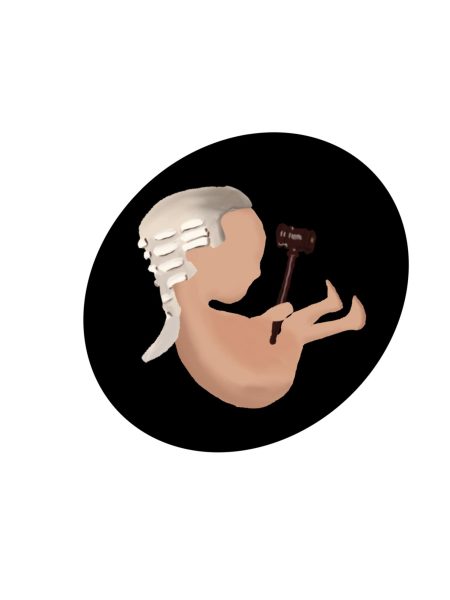Autism awareness is not enough
April 18, 2023
The month of April is known for spring, flowers and Autism Awareness Month. Teachers, instructors and other individuals will don puzzle piece pins, ribbons, shirts and other paraphernalia. Thousands of landmarks and buildings will be lit up blue for the “Light it up Blue” campaign started by the infamous organization, Autism Speaks. Unfortunately, these performative and insufficient actions done in the name of so-called autism awareness do nothing for those who are autistic; in fact, they do more harm than good.
Many people will see the puzzle piece used to represent autism. The puzzle piece symbol, which originally included an image of a crying child, was chosen to represent “the missing piece” and the “puzzling condition” called autism. These reasons for using the puzzle piece to represent autism and autistic individuals are nothing more than erroneous, as having autism and having deficits or differences in some cognitive areas does not mean there is something “missing” or that someone is less human. Autism should not be treated as some puzzling or paradoxical condition, as these beliefs are what promote a negative image of autism and cause those with the condition to be misunderstood and subject to harm from others who hold those beliefs. In addition, the puzzle piece was selected as a symbol for autism without any input whatsoever from the autistic community. Many individuals with autism will tell you that they prefer the infinity sign to represent their condition since it symbolizes the infinite diversity of autism, as no two autistic people are the same.
The color blue being used to represent autism in the “Light it up Blue” campaign has a sexist history. When autism was first being studied, doctors only studied males with the condition, creating systemic discrimination in the medical field that has lasting effects. To this day, autistic people who are assigned female at birth go through extreme difficulties to get diagnosed, as doctors will look for symptoms only present in males. The color blue promotes the idea that more males have autism, as this is a widely accepted stereotype. Blue is also typically a color associated with grief and loss, and the narrative that having autism or having a child or family member who is autistic is something that must be changed, as autism is nothing to mourn. Still, the diversity of the autistic mind is something to embrace. This is why many autistic people will tell you that they prefer the “Red Instead” slogan to the “Light it up Blue,” as red is a color associated with fire and passion. Some autistic people will even tell you that they like the color gold, as the element gold is represented by “Au” in the Periodic Table, originating from the Latin “aurum.”
Autism Speaks is the most famous charity that people will donate to during Autism Awareness Month in an unsatisfactory effort to “help” those with autism. The truth is that Autism Speaks’ fundraising strategies further promote fear and prejudice against autistic people. An example of this can be seen in the 2009 commercial titled “I am Autism,” a disturbing commercial that vilifies and demonizes autism. A sample from the commercial reads in an eerie voice, “I work very quickly. I work faster than pediatric aids, cancer and diabetes combined. And if you’re happily married, I will make sure that your marriage fails. Your money will fall into my hands, and I will bankrupt you for my own self-gain. I don’t sleep, so I make sure you don’t either. I will make it virtually impossible for your family to easily attend a temple, birthday party, or public park without a struggle, without embarrassment, without pain. You have no cure for me.”
A documentary titled “Autism Every Day,” sponsored by Autism Speaks, was released in 2006. The documentary consists of interviews with mothers with “severely autistic” children. One interview that drew significant controversy was that of Alison Tepper Singer, president of the Autism Science Foundation, who publicly fantasized about murdering her child by driving off a bridge with herself and her daughter in the car when faced with having to enroll her daughter in a school for disabled children. Suzanne Wright, the founder of Autism Speaks, said in a January 2008 interview with Parade Magazine that her goal is to “eradicate” autism. Autism Speaks is nothing more than a hate group masquerading as a charity. Instead of donating to this group that paints autism as a monstrous condition to be feared, autistic people encourage you to donate to the Autism Self-Advocacy Network, which was created with the motto, “Nothing About Us Without Us,” meaning that autistic people need to be included and involved whenever autism is discussed.
Something that those who do not have autism should take into account is that it is essential to always include autistic people when talking about autism, whether that is asking for the input of someone you know who has autism, posting on an online forum to ask those with autism to answer a question you have, et cetera. For example, many people and organizations believe one should always use “person-first language” when referring to those with autism or other disabilities. Person-first language is a type of linguistic description that puts a person before a diagnosis, describing what condition a person “has” rather than asserting “what” a person “is.” The truth is that autism and other conditions, such as Attention Deficit Hyperactivity Disorder, are neurological conditions, which means that they completely rewire the brain. A person who is autistic would not be the same if they were not autistic, and person-first language promotes the idea that people with disabilities would be the exact same if they did not have those disabilities when that is untrue. Disabled people have unique experiences navigating a world that was not built for them, and unique and diverse perspectives that exist because of their disability; hence they would not be the same if they were not disabled.
An additional commonly-held myth is that the word “disability” is a negative word and should not be used, with some people insisting on using the phrase “differently abled” instead. “Disabled” is not a dirty word. It is okay to have a disability and to admit that people have so-called disabilities because they lack some skills such as social skills, intellectual impairment, motor skills, et cetera. What is not okay is treating those who are disabled as inferior. Disabled people are disadvantaged because this world was not built to be accessible. Disabled people are only disabled by society.
This Autism Awareness Month and every day of the year should not be dedicated to simply being “aware” that autism exists, but we should instead embrace and accept those with autism and their diversity of thought and perspective. Rather than discriminating against peoples’ differences, we should embrace the Vulcan philosophy from “Star Trek:” “Infinite diversity in infinite combinations.”












